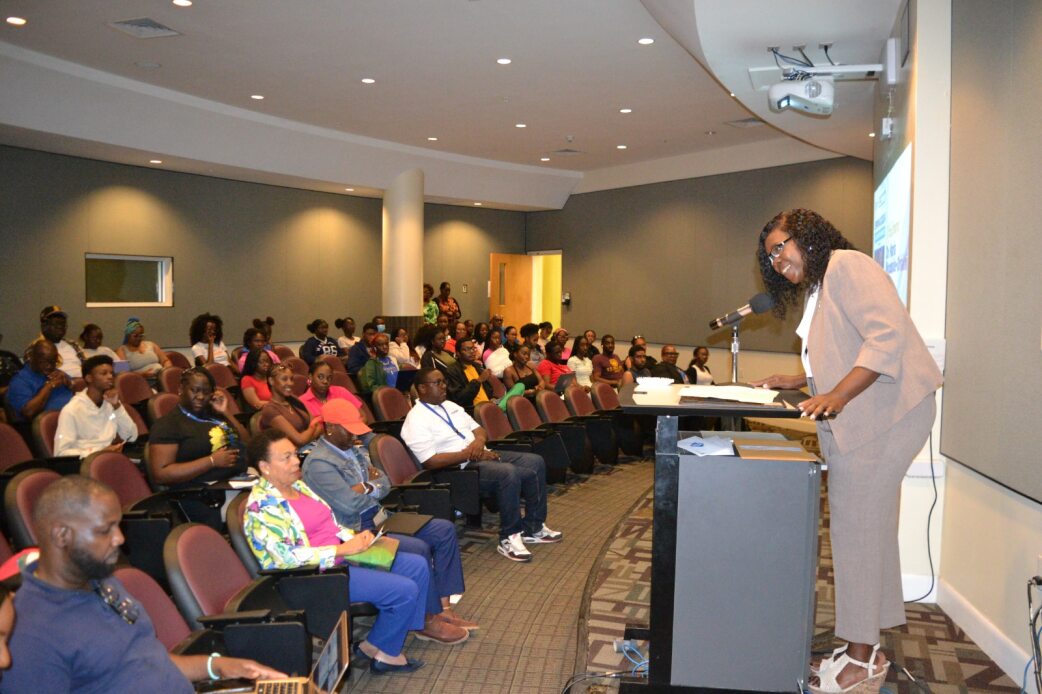Nassau, THE BAHAMAS — Some of the most successful and accomplished professionals and business leaders in the country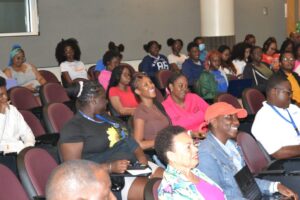 recently shared their experiences and nuggets of wisdom with students at University of The Bahamas (UB) about thriving in a wide range of careers.
recently shared their experiences and nuggets of wisdom with students at University of The Bahamas (UB) about thriving in a wide range of careers.
The University Centre for Counselling and Career Services and the Career and Job Placement Advisory Unit collaborated to host the 2024 Career Symposium which brought students face to face with leaders in the careers to which they aspire.
Vice President of Academic Affairs, Dr. Maria Oriakhi, said the symposium was key to developing potential as university students strive to leave their mark on the world.
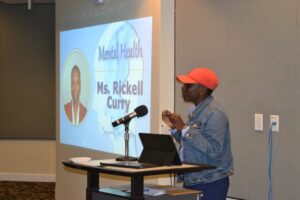
Ms. Rickell Curry
“In the spirit of collaboration and growth, let us engage in meaningful dialogue, cultivate relationships, and harness the power of collective wisdom to shape our futures,” said Dr. Oriakhi. “Together, let us embark on this journey of exploration and discovery, united in our commitment to realizing our fullest potential and making meaningful contributions to our communities and beyond.”
Promoting careers in psychology, Ms. Curry noted that psychologists are equipped with the ability to help others, troubleshoot areas of weakness within themselves, and become better people and professionals in the process.
“The floor is yours to be able to explore. There’s no job where you don’t have to deal with people, so learning, even if you get a bachelor’s in psychology, is a great grounding,” she said.
Dr. Darville, one of few interventional radiologists in The Bahamas, offered another nugget of advice on choosing an area of study.
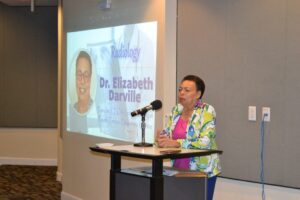
Dr. Elizabeth Darville
“It is important to know enough about yourself in order to make the decisions you want to make,” said Dr. Darville. “You have to work on yourself first and know what you want to do. Radiology gives you a chance to have fun. It gives you a chance to mold your career closer to your personal life than other medical specialties might.”
Another growing field is project management which Mr. Hepburn called a life skill. He also urged a commitment to lifelong learning.
“Individuals that continue to learn become unstoppable, period,” said Mr. Hepburn. “It is so true. When you learn, you become unstoppable because nothing can stop you in your process of development.
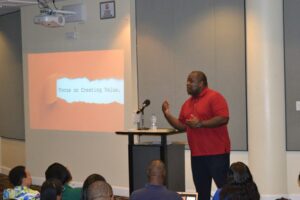
Mr. Wellington Hepburn
“The more you know, the more valuable you are. We need individuals who are cross functional—that can operate in different capacities. So please understand that your learning should never stop.”
With small and medium-sized businesses helping to drive the economy at an incredible rate, Ms. Rolle affirmed the importance of entrepreneurship in any economy.
“When we talk about entrepreneurship, we usually look at it from a myopic standpoint,” she said. Ms. Rolle. “What do I mean by that? Small, but usually about self: ‘how do I make more money?’ And in some cases, some look at entrepreneurship as a way of survival. ‘I need to make a couple extra dollars, I have this bill to pay’. Those types of things.

Ms. Samantha Rolle
“But entrepreneurship really, in its truest form, is about innovation, whether it’s a new concept or any existing concept that you innovate new ways, or help expand the economy.”
The career symposium was held at the Harry C. Moore Library and Information Centre and is held every academic year.
PHOTO CAPTIONS
- Career Symposium 1: UB Vice President of Academic Affairs, Dr. Maria Oriakhi, delivers the opening address at the 2024 Career Symposium.
- Career Symposium 2: Students and guest speakers enjoy a lighthearted moment during the 2024 Career Symposium.
- Career Symposium 3: Ms. Rickell Curry speaks to students during the 2024 Career Symposium.
- Career Symposium 4: Dr. Elizabeth Darville delivers remarks during the 2024 Career Symposium.
- Career Symposium 5: Mr. Wellington Hepburn educates students on the importance of project management during the 2024 Career Symposium.
- Career Symposium 6: Ms. Samantha Rolle talks about the role and importance of entrepreneurs and entrepreneurship in any economy.
Office of University Relations
University of The Bahamas
2nd Floor, Michael H. Eldon Complex
Oakes Field Campus
P.O. Box N-4912
Nassau, The Bahamas
Tel: (242) 302-4355/4354/4365


 Caribbean News1 week ago
Caribbean News1 week ago
 News1 week ago
News1 week ago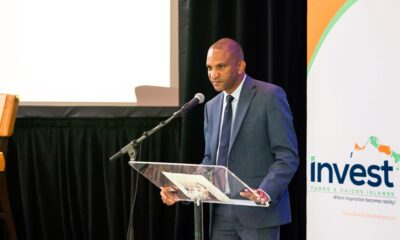
 Finance1 week ago
Finance1 week ago
 Crime1 week ago
Crime1 week ago
 Crime1 week ago
Crime1 week ago
 TCI News1 week ago
TCI News1 week ago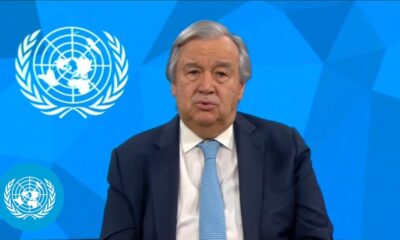
 Africa1 week ago
Africa1 week ago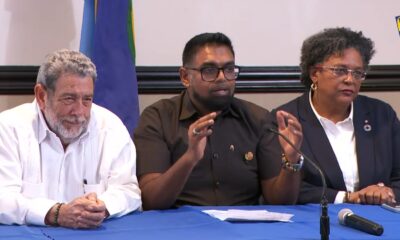
 Caribbean News1 week ago
Caribbean News1 week ago
